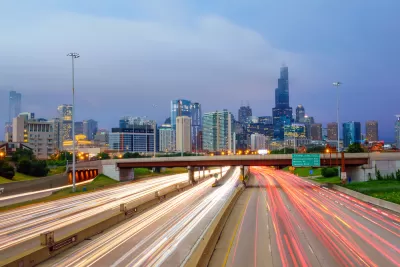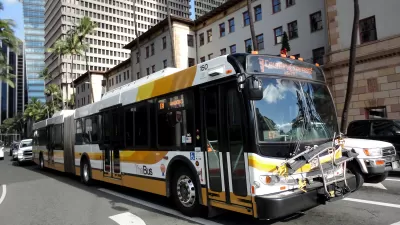The organization claims the standards used by cities are consistent and capture the most policy-relevant emissions.

On the heels of a study that indicated a broad underreporting of local greenhouse gas emissions by U.S. cities, ICLEI-USA (the U.S. chapter of Local Governments for Sustainability) has issued a press release rejecting the study's findings. "The GHG accounting method in the study is atypical in local GHG accounting, it is not fully comparable with city inventories, and does not address some of the key policy levers that drive cities to conduct GHG inventories and develop GHG mitigation strategies," ICLEI-USA claims.
The press release explains that the U.S. Community Protocol for Accounting and Reporting of Greenhouse Gas Emissions (USCP), an index used by many communities, "details science-based methodologies and best practices to guide local governments as they measure and report the GHG emissions and removals associated with their communities," highlighting the policy areas where local intervention has "the best opportunity" to reduce emissions and increase carbon sinks. "Local government practitioners developed community GHG accounting protocols to provide actionable results for decision makers and align with national inventories for multi-level collaboration. To imply that cities have erred in reporting emissions is misleading and does a disservice to the thousands of local governments doing their part to solve the climate crisis."
ICLEI is the developer of the USCP tool, which they say is "developed to provide local policymakers and their communities with the most appropriate understanding of how their community’s activities translate into GHG emissions." Using their standards, they claim, cities can get a better understanding of their role in GHG emissions and which policy decisions can make a real impact at the local scale.

Alabama: Trump Terminates Settlements for Black Communities Harmed By Raw Sewage
Trump deemed the landmark civil rights agreement “illegal DEI and environmental justice policy.”

Planetizen Federal Action Tracker
A weekly monitor of how Trump’s orders and actions are impacting planners and planning in America.

Why Should We Subsidize Public Transportation?
Many public transit agencies face financial stress due to rising costs, declining fare revenue, and declining subsidies. Transit advocates must provide a strong business case for increasing public transit funding.

Understanding Road Diets
An explainer from Momentum highlights the advantages of reducing vehicle lanes in favor of more bike, transit, and pedestrian infrastructure.

New California Law Regulates Warehouse Pollution
A new law tightens building and emissions regulations for large distribution warehouses to mitigate air pollution and traffic in surrounding communities.

Phoenix Announces Opening Date for Light Rail Extension
The South Central extension will connect South Phoenix to downtown and other major hubs starting on June 7.
Urban Design for Planners 1: Software Tools
This six-course series explores essential urban design concepts using open source software and equips planners with the tools they need to participate fully in the urban design process.
Planning for Universal Design
Learn the tools for implementing Universal Design in planning regulations.
Caltrans
Smith Gee Studio
Institute for Housing and Urban Development Studies (IHS)
City of Grandview
Harvard GSD Executive Education
Toledo-Lucas County Plan Commissions
Salt Lake City
NYU Wagner Graduate School of Public Service





























